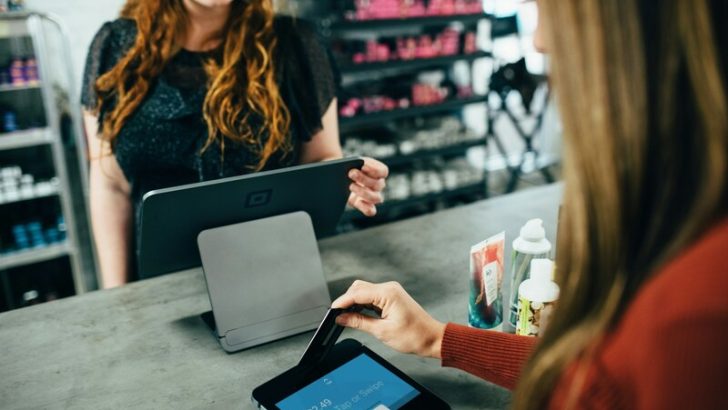Establishing a business with a focus on long-term profitability is a common goal, but in 2025 and beyond, prioritizing the planet and environment isn’t just an option—it’s a necessity. As we embrace the future, the concept of ‘business sustainability’ is becoming increasingly crucial for shaping a more responsible world.
Whether you’re a business owner or simply interested in the evolution of businesses, understanding how sustainability fits into modern operations is vital.
This article will guide you through the definition of sustainable business, explain why it will become increasingly essential in 2025, and show you how business owners and consumers can take more thoughtful action for a better future.
What Is Business Sustainability?
To put it simply, business sustainability means doing business in a way that doesn’t negatively impact society or the environment. It is a balance of what is commonly referred to as the Triple Bottom Line: Profit, People, and Planet.
Sustainability encompasses a wide range of practices and decisions a business makes in its operations, from what and how it produces its products, to how it treats its employees, and the efficient use of resources. Ultimately, it’s about making deliberate choices that benefit both people and the planet, while also generating profits.
The Significance of Business Sustainability in 2025

Sustainability in businesses has become a primary issue as social consciousness and climate concerns increase, not only for major companies but also for startups and small businesses. Here’s why it’s more critical than ever:
Investor Priorities:
Today’s investors are placing greater importance on environmental, social, and governance (ESG) factors. When a company sets clear sustainability goals, it’s often viewed as a lower-risk and more future-ready investment.
Consumer Demand:
Millennials and Gen Z are especially drawn to brands that align with their values. As ethical consumption becomes more mainstream, people are increasingly making purchasing decisions based on a brand’s values and principles.
Environmental Urgency:
Issues like pollution, resource depletion, and climate change are no longer distant concerns. Governments and international organizations are expected to enforce stricter regulations in 2025 to hold themselves accountable for their environmental impact.
Essential Sustainable Practices for 2025 Businesses
Here are some of the most effective tactics that companies are implementing in 2025:
Sustainable Product Design
- Providing eco-conscious options without sacrificing quality.
- Steering clear of toxic materials and non-renewable resources.
- Designing products that last, can be reused, or easily recycled.
Eco-Friendly Practices:
- Shifting to renewable energy sources.
- Reducing energy and water consumption wherever possible.
- Using sustainable materials in both production and packaging.
- Recycling and reusing materials to cut down on waste.
Digital Sustainability
- Practicing awareness in how we store data, run digital campaigns, and use our devices.
- Minimizing the environmental impact of digital tools and server operations.
Social Responsibility
- Committing to fair pay and safe, respectful working environments.
- Giving back to local communities through acts of service or charitable contributions.
Here’s How to Get Started:
Sustainability might seem like an overwhelming undertaking, but it doesn’t require massive initial changes. Let’s explore some accessible ways you can begin your journey:
Understand the Concept of Business Sustainability
Before taking action, it’s essential to clearly understand what business sustainability entails. Running your company in a way that preserves the environment, promotes social justice, and maintains financial viability is more important than simply “going green.”
Set Clear, Measurable Objectives
You can’t manage what you don’t measure. Set measurable, attainable, and clear sustainability goals first. For example: Switch 50% of your packaging to recyclable materials. Assign responsibilities, establish deadlines, and monitor advancement over time.
Review Your Current Practices
Start by examining how things are currently run. Consider questions like:
- How much waste is being produced?
- Where do your materials come from?
- Are your digital tools and storage systems energy-efficient?
- How do employees typically commute to work?
Engaging in this type of self-assessment can reveal specific areas for growth and help you pinpoint the changes that will deliver the most significant impact
Implement & Educate
Once you’ve set your goals and developed a plan, it’s important to involve your team and bring them on the journey towards sustainability. Here’s how you can get started:
- Host training sessions or short workshops to share your goals.
- Introduce small changes in workplace culture and habits, like installing recycling stations and setting up reminders to save energy.
Embrace Transparency & Share Your Progress
Sustainability isn’t about being perfect; it’s about making progress and taking meaningful steps towards your goals. Being transparent with your customers, employees, and stakeholders about your sustainability efforts helps build trust and authenticity.
In 2025, business sustainability has evolved beyond being a mere trend or a checkbox on a corporate responsibility checklist. Instead, it has emerged as a key driver for innovation, long-term resilience, and relevance in a world that is constantly evolving. The businesses that thrive tomorrow are the ones making intentional, thoughtful decisions today.

